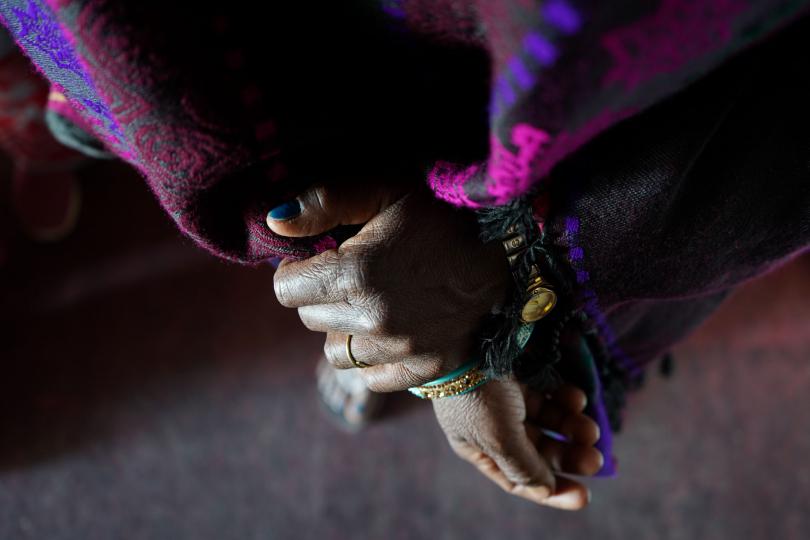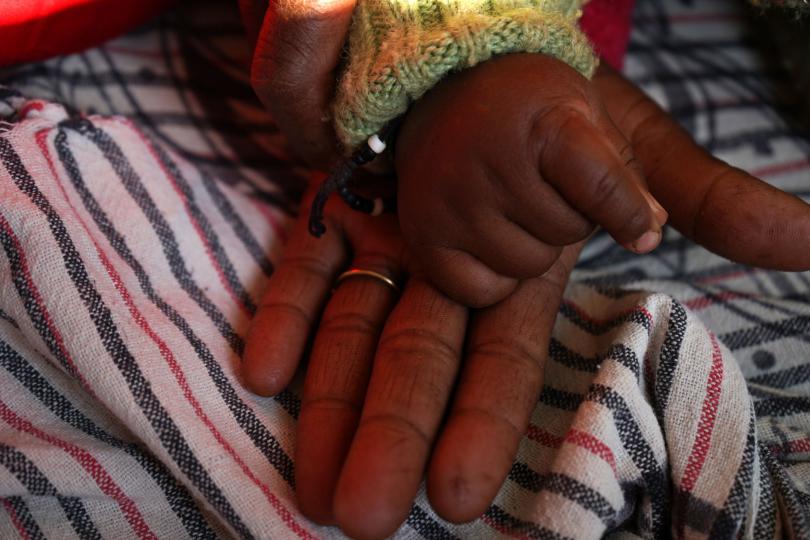Community Care Centers: Providing a Lifeline for People Living with HIV

Written by Prachi Aryal
38-year-old Sujata (name changed) has her hands full. Her daily life revolves around taking care of her four children, household chores, and managing a small herd of goats. “My husband works abroad and comes home during certain occasions,” she shares.
“A year ago, my world turned upside-down,” explains Sujata. “My husband had a fever, cough, and complained of weakness. So, we took him to the mobile health camp.” The mobile health camp, operated by Save the Children under the Global Fund Program, is designed to provide critical health services to returnee migrants. Services also include HIV and COVID-19 testing. “We got checked in the health clinic, and that’s when both my husband and I found out that we were HIV positive,” Sujata exclaims.
Operated under Save the Children’s Global Fund program, this mobile camp serves as a critical health service outlet for returnee migrant workers, offering vital health services, including HIV and COVID-19 testing. At the camp, health workers also advised Sujata and her husband to undergo health screening, which they did. They both tested positive for HIV.

“For a moment, I could not think of anything. I felt as if the entire world was crumbling down on me. I struggled to understand how we contracted this disease. This confusion was exacerbated by the fear of being judged by people in society. I was afraid for myself and my family,” recalls Sujata.
Following the results, the couple was referred to the local hospital where they received counseling and started antiretroviral therapy (ART). At the hospital, their newborn underwent early infant diagnosis (EID) for HIV, and to the couple’s relief, the child tested negative. After receiving ART, they were referred for further counseling to a Community Care Centre (CCC) run by Pyuthan Plus, a partner organization working alongside Save the Children to strengthen HIV response in the area.
For Sujata and her husband, the referral to the CCC was a turning point in how they approached life after HIV infection. “The social workers at the CCC provided us with invaluable counseling, guiding us through the diagnosis, treatment, and, most importantly, addressing the social stigma attached to the disease," she adds. Sujata and her husband have been taking ART for the last year. Now, their viral loads are suppressed and under control. The therapy has supported them in continuing with their lives.
At the CCC, community mobilizers and counselors work round the clock to provide support to people living with HIV (PLHIV). The CCC provided health services to 112 HIV-infected people in 2023 alone. There are 55 such CCCs under Save the Children’s Global Fund program currently operating in 47 districts across Nepal.
For many, like Sujata and her husband, the CCCs serve as the only sanctuary in a society rife with ostracization for people living with HIV. They find a haven in these centers for connecting with fellow PLHIV, sharing their struggles, and seeking solace without the fear of discrimination.

Sujata is hopeful that her youngest child will test negative for HIV again in the next screening he undergoes when he turns 18 months. She is confident that through continued use of ART, she will lead a normal life. “I am glad I received support through the CCC. The counseling has helped me immensely to overcome my fear and mental chaos. I will continue to take ART as advised by the health workers so that I can continue to support my children and myself,” says an optimistic Sujata.
The Global Fund program has been working in all 77 districts of Nepal to strengthen HIV, malaria, and TB response to reach the most vulnerable communities.
Aryal is the Digital and Media Coordinator at Save the Children.

